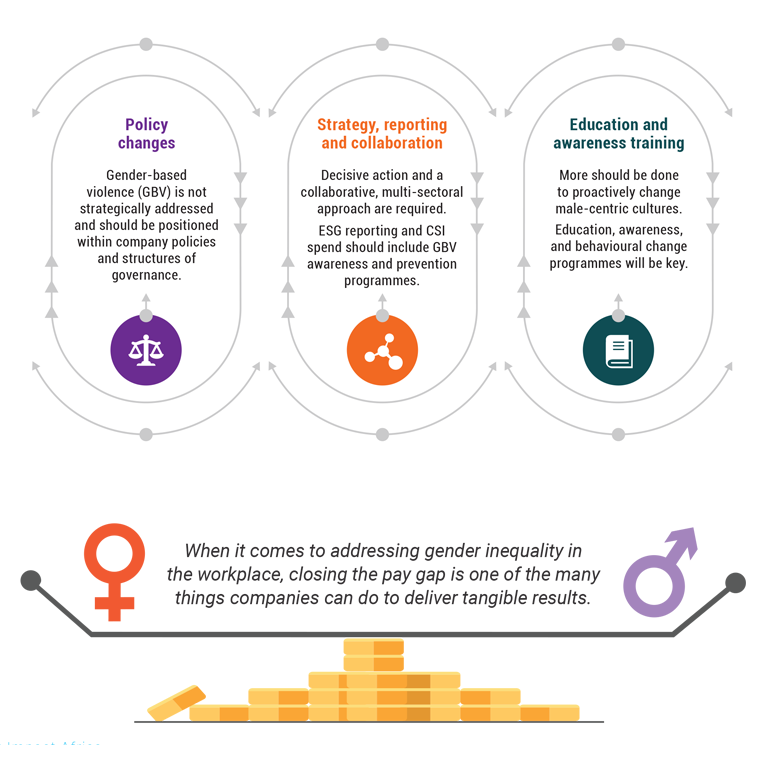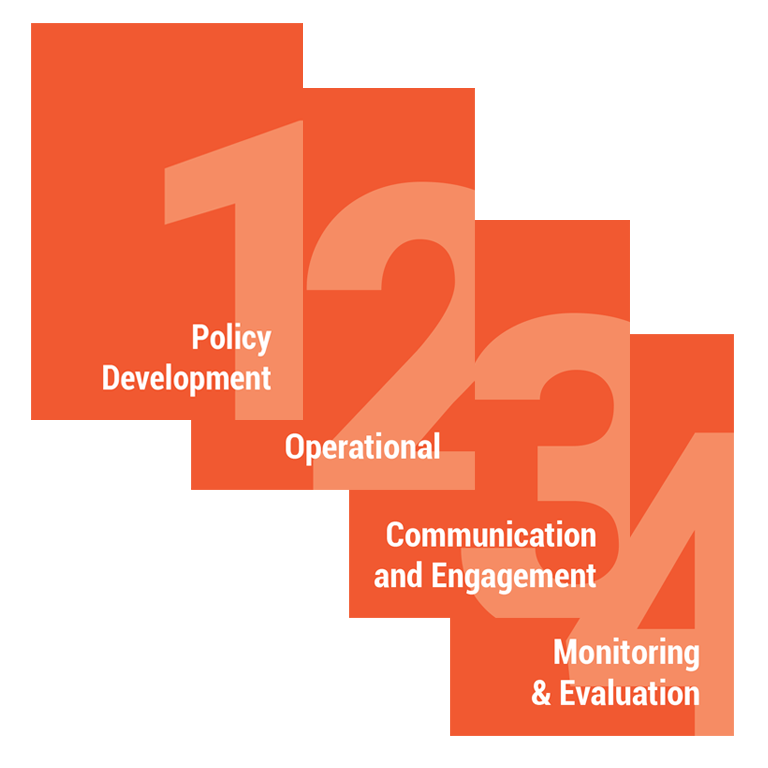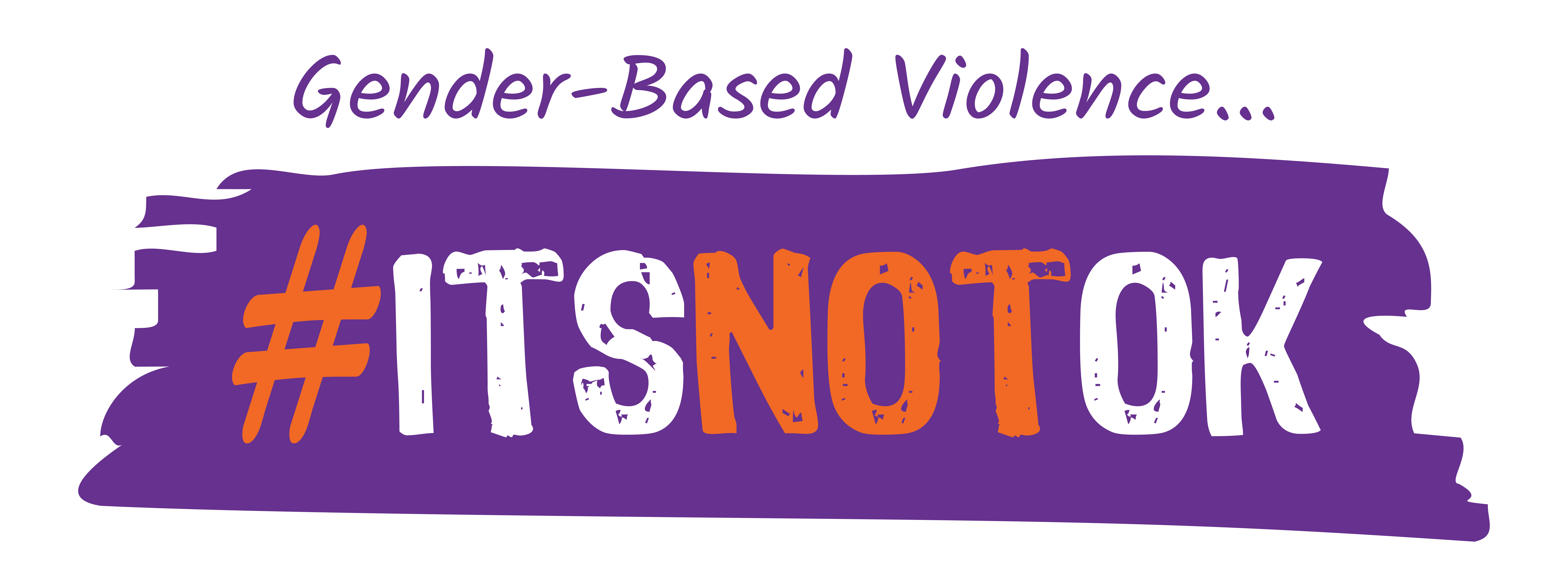After completing the Gender Equality Self-Assessment, an organisation may have identified areas of improvement or untapped opportunities in the business’ approach to gender equality. This is where the Gender Equality Implementation Guide comes into play.
The purpose of the Implementation Guide is to provide guidance and support to organisations to develop and implement strategies, policies, and operational guidelines aimed at promoting gender equality and addressing gender-based violence and discrimination.
For executives navigating the complex terrain of gender equality on the African continent, the Gender Equality Implementation Guide offers a tangible roadmap. Each chapter speaks and guide core business areas towards developing, actionable activities tailored to various organisational requirements.
The Implementation Guide aims to:
- Present a thorough appraisal of the business case for gender equality, outlining the advantages it holds both for organisations and society at large.
- Outline key strategies, policies, and operational procedures that can be used by organisations to advance gender equality as well as counter gender-based violence and prejudice.
- Supply practical guidance alongside resources to help with the implementation of such initiatives; provide suggestions for monitoring progress in addition to evaluating results.
In its most basic form, the Implementation Guide provides a comprehensive framework consisting of policies, programmes, communication strategies, evaluation guidelines, and resources. This framework is designed to guide organisations through a step-by-step process of achieving equality and to encourage participation from stakeholders.


The Implementation Guide speaks to the following business areas:
- Policy Development: This section offers a combined approach to address equality, discrimination and prevent workplace violence, by providing guidelines on implementing policies for gender equity and preventing sexual abuse, together with resources for those affected.
- Operational: This chapter offers guidelines to help organisations create a fair and inclusive work environment that actively promotes gender equality and prevents gender-based violence and discrimination.
- Communication and Engagement: This chapter provides practical resources for companies to effectively engage with employees, stakeholders and the community, communicate their commitment to gender equality, and cultivate a culture of respect, inclusivity, and equity.
- Monitoring and Evaluation: In this chapter guidelines are presented to support organisations in their efforts to foster a workplace culture that values and respects all employees, regardless of gender.

